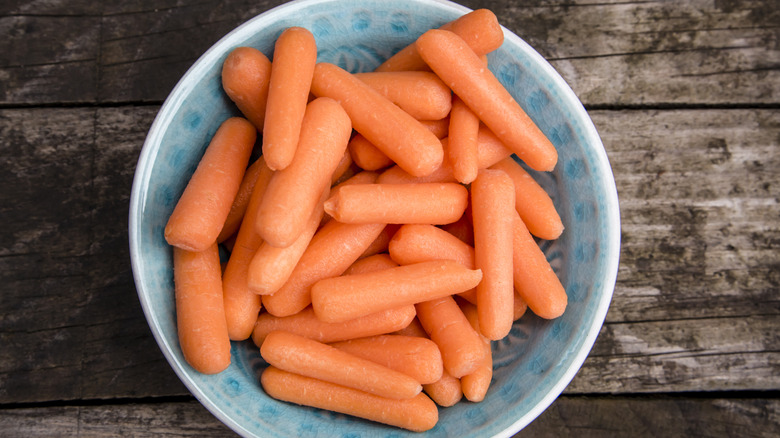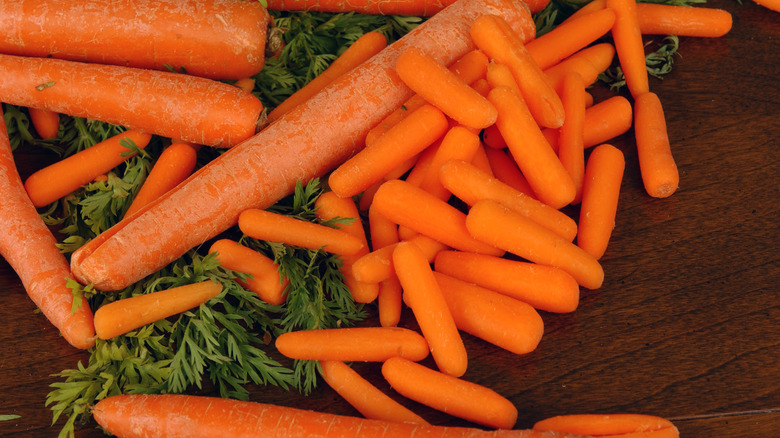The Key To Storing Baby Carrots In The Fridge Is A Simple Liquid
Storing baby-cut carrots properly in the fridge all comes down to maintaining the right moisture levels. When these carved-down veggies — no, they aren't grown that small — are shipped to stores, you may have already noticed that they arrive in bags with a small amount of water. Exposure to air is the prime culprit of carrot degradation, especially skinless ones. Without moisture, these petite carrots shrivel and wilt.
To preserve the freshness of these tiny carrots, give them a quick rinse and place in an airtight container filled with cold, distilled water. It's important that you change out the liquid every few days to keep things fresh. And don't forget to rinse the carrots once more before eating. As long as you replace the water when it becomes cloudy (that's usually within four to five days), your baby-cut carrots should be good to eat for 3 to 4 weeks.
Why does the water hack work?
Carrots, whether baby-cut or normal sized, are susceptible to dehydration. Growers package the produce in vacuum-sealed containers or plastic bags with a little water, which helps keep the snack-sized carrots moist as they travel to market. Unfortunately, consumers place their newly purchased veggies in an arid environment — that would be the fridge — where they slowly dry out.
But why is air so bad for the carrots? Normal sized veggies are often protected by a peel. Since baby-cut carrots lack even a thin version of this outer covering, they are especially vulnerable to drying up.
That doesn't necessarily mean you have to toss out mildly dried baby carrots. Contrary to belief, the white flaky substance that forms on carrots is not an indication of spoilage. The white blush are actually internal fibers and is a sign that the carrots are dry. You should still be able to toss them in your daily smoothie alongside other veggies. Yet, if they smell bad, feel slimy, or are soft enough to be bendable, it's time to toss them out.

